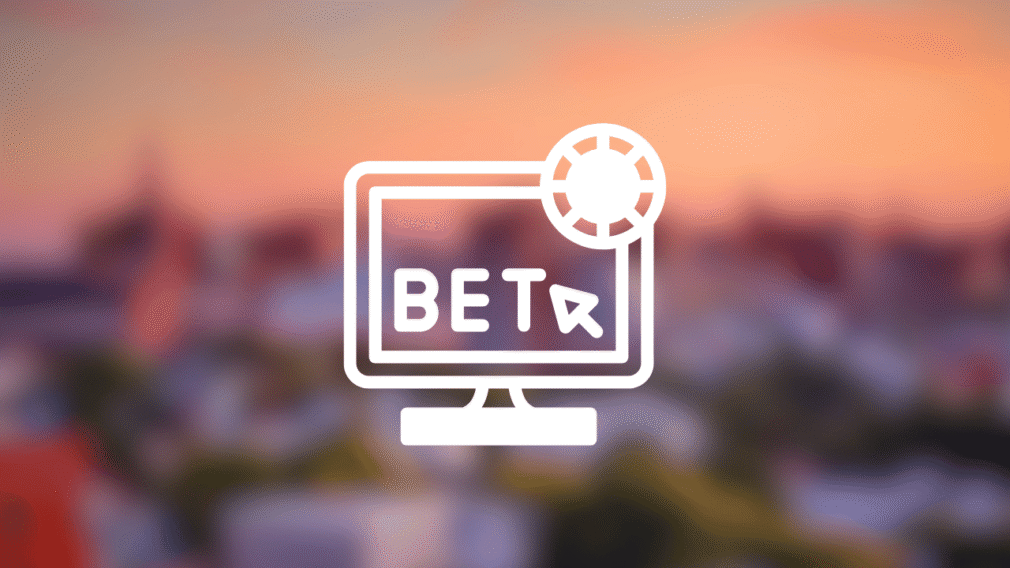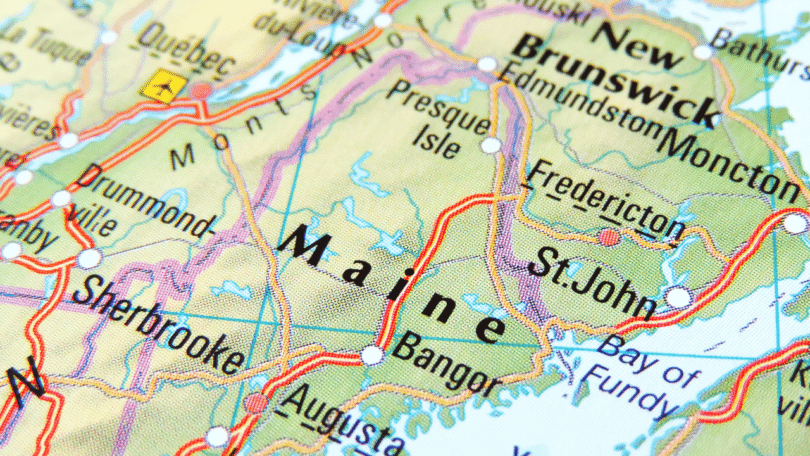Is Sports Betting Legal in Maine? Everything You Need to Know
In Maine, sports betting has been legal since November 3, 2023, when Legislative Document 585 (LD 585) launched a tribal-led sports betting market. Currently, the Penobscot, Passamaquoddy, Maliseet, and Micmac tribes oversee online betting through partnerships with Caesars and DraftKings, while retail betting thrives at Oxford Casino, Hollywood Casino Bangor, and off-track betting (OTB) sites like Favorites OTB in Waterville.

Maine’s sports betting market, launched on November 3, 2023, is a beacon of tribal sovereignty. Legalized via LD 585 in May 2022, it grants the state’s four federally recognized tribes: Penobscot, Passamaquoddy, Maliseet, and Micmac, exclusive rights to online betting, with retail options at tribal casinos and OTB sites. Caesars and DraftKings dominate online, while Oddfellahs in Portland, opened by Caesars in September 2024, leads retail betting.
Overseen by the MGCU, the market generated a $44.9 million handle in January 2025, with mobile bets comprising 85%. Restrictions on in-state college betting protect local athletes, but offshore sites tempt some with broader markets.
Maine’s Path to Tribal-Led Legalization
Maine’s journey to legal sports betting began with the 2018 Murphy v. NCAA ruling, which struck down PASPA, freeing states to regulate wagering.
Early efforts, like LD 553 in 2019, failed when Governor Janet Mills vetoed it on January 10, 2020, citing concerns over market readiness, advertising saturation, and impacts on youth and vulnerable populations. Despite Senate support to override (20-10), the House fell short (85-57).
Tribal advocacy, led by figures like Chief Kirk Francis of the Penobscot Nation, shifted the tide. On May 2, 2022, Governor Mills signed LD 585, effective July 31, 2022, granting tribes exclusive online betting rights.
Online sportsbooks launched on November 3, 2023, with Caesars (Penobscot, Maliseet, Micmac) and DraftKings (Passamaquoddy). Retail betting followed in September 2024 at Oddfellahs and other venues, cementing Maine’s tribal-led model.

Regulatory Framework and Tribal Oversight
LD 585 and the MGCU govern Maine’s betting market with clear rules:
- Age and Location: Bettors must be 21+ and in Maine, verified by geolocation technology every 5–20 minutes near state borders.
- Taxation: A 10% tax on gross gaming revenue (GGR), plus a 0.25% federal excise tax, generated $4.5 million in 2024, with tribes retaining 50% of online revenue.
- College Betting Restrictions: Bets on in-state college teams (e.g., University of Maine) are banned unless in multi-state tournaments; player prop bets on college athletes are prohibited.
- Licensing: Tribes hold online licenses ($200,000, renewable every four years), while retail venues pay $4,000. Each tribe partners with one operator.
Federal laws like the 1961 Wire Act and 2006 UIGEA bolster regulation, deterring offshore betting. The MGCU mandates audits, consumer protections, and responsible gambling tools, with tribal oversight ensuring fairness and cultural sensitivity.
Recent Developments in Maine Sports Betting
- [July 25, 2025]: PrizePicks Secures First-Ever DFS Gaming License in Puerto Rico, Adds Maine
- [July 10, 2025]: Maine’s Online Casino Bill LD 1164 Faces Delay Until 2026
- [July 2, 2025]: Lotto.com Brings Maine Lottery Online
- [June 20, 2025]: Maine House Passes iGaming Bill, Awaits Governor’s Signature
- [June 18, 2025]: Maine’s Online Casino Bill Back in House
Top Sportsbooks and Betting Platforms
Maine’s tribal-led market features two active online sportsbooks and retail options:
-
Caesars Sportsbook: Partners with Penobscot, Maliseet, and Micmac tribes, offering live streaming and a “Bet $1, Double Your Winnings” promotion up to $2,500.
-
DraftKings: Paired with the Passamaquoddy Tribe, excelling in same-game parlays and live betting.
-
Retail Betting: Available at Oxford Casino, Hollywood Casino Bangor, and OTB sites like Favorites OTB in Waterville. Oddfellahs Sportsbook and Bar in Portland, opened September 16, 2024, is Maine’s first retail sportsbook.
-
DFS Platforms: DraftKings and FanDuel offer legal daily fantasy sports, regulated separately.
Despite sources suggesting Bet365 (Maliseet) and FanDuel (Micmac) as partners, only Caesars and DraftKings are active, as BetMGM and FanDuel declined licenses due to the tribal revenue model (50% to tribes, 30-40% to operators). Mobile betting dominates, with 85% of the $44.9 million January 2025 handle placed online, driven by promotions like DraftKings’ “Bet $5, Get $150” offer.
Betting Options and Market Features
Maine offers diverse betting options:
- Spreads
- Moneylines
- Totals (over/under)
- Parlays (up to 10 legs with Caesars)
- Prop bets (excluding college player props)
- Futures
- Live betting
- Same-game parlays (pioneered by FanDuel in DFS)
Popular sports include NFL (New England Patriots), NBA (Boston Celtics), MLB (Boston Red Sox), NHL (Boston Bruins), MLS, and college sports, with restrictions on in-state teams like the University of Maine Black Bears unless in tournaments.
Bets on high school sports, politics, and entertainment awards are prohibited. Esports betting is limited to DFS, though regulations may evolve. Mobile apps, handling 85% of bets, offer live streaming, real-time odds, and AI-driven personalization, with MGCU’s geolocation ensuring compliance.
Economic Impact and Tribal Benefits
Maine’s betting market, while smaller than New Hampshire’s ($78 million January handle), is economically significant. The $44.9 million January 2025 handle reflects an 18% year-over-year increase, with $4.5 million in taxes collected in 2024 at a 10% GGR rate. Tribes retain 50% of online revenue, projected to earn Passamaquoddy $25 million annually, supporting tribal programs, education, and $500,000 for problem gambling treatment in 2024.

Oxford and Hollywood Casinos employ nearly 1,000 Mainers, boosting hospitality and tech sectors in Bangor and Oxford. The tribal model ensures economic self-determination, distinguishing Maine from Iowa’s commercial market. No disruptions are reported, with steady growth driven by mobile betting and tribal partnerships.
Navigating Offshore Betting Risks
Some Mainers use offshore sites like Bovada for broader markets (e.g., politics, in-state college props) or perceived better odds. These platforms pose serious risks:
- Legal Violations: Offshore betting violates Maine pace, risking penalties under the Wire Act and UIGEA, though individual prosecutions are rare.
- Financial Risks: Delayed or withheld winnings lack legal recourse, with high rollover requirements complicating payouts.
- Security Risks: No U.S. data protections increase fraud and breach risks.
- Unfair Odds: Unaudited odds may disadvantage bettors.
- No Safeguards: Lack of responsible gambling tools heightens addiction risks.
The MGCU’s 2024 and 2025 warnings, including a June 9, 2025, press release, highlight that no online casinos or sweepstakes sites are licensed, urging bettors to use regulated platforms like Caesars, DraftKings, or DFS options for safety.
Responsible Betting in Maine’s Market
Maine’s regulated market prioritizes responsible gambling, with MGCU-mandated tools:
- Deposit/Time/Loss Limits: Cap spending or playtime, with instant decreases.
- Self-Exclusion: Blocks access for one, three, five years, or permanently, enforceable online or at venues.
- Reality Checks: Alerts on time/money spent.
- Support Links: Display 1-800-GAMBLER and MGCU resources.
Practical tips include:
- Budget Wisely: Use disposable income (e.g., $20 per session from $100).
- Avoid Chasing Losses: Don’t raise bets to recover losses.
- Take Breaks: Pause every 30–60 minutes.
- Understand Odds: Set realistic expectations.
- Healthy Alternatives: Use hobbies or exercise for stress relief.
The NCPG estimates 2-3% of Americans face gambling issues, with sports bettors at higher risk. Maine’s 1-800-GAMBLER, 211 Maine, and Maine Council on Problem Gambling offer 24/7 support, with four free counseling sessions and GamFin financial advising added in 2025. Only 10 Mainers enrolled in self-exclusion in 2023, reflecting low but monitored problem gambling rates.
Maine’s Betting Future: Tribal-Driven Growth
Maine’s market is poised for steady growth in 2025, with no major legislative changes expected. The $44.9 million January handle signals mobile demand, with 85% of bets placed online. Potential tribal partnerships with Bet365 or FanDuel could expand the market, though only Caesars and DraftKings are active. Micro-betting and same-game parlays will attract younger bettors, while esports remains DFS-limited.
The absence of broad college betting restrictions (except in-state teams) enhances flexibility. The 10% tax rate and 50% tribal revenue share ensure sustainability, with AI and VR set to boost app engagement. Maine’s tribal-led model remains a regional leader, balancing growth with sovereignty.
Is sports betting legal in Maine in 2025?
Yes, legal since November 3, 2023, via LD 585, regulated by the MGCU.
Which sportsbooks operate in Maine?
Caesars (Penobscot, Maliseet, Micmac), DraftKings (Passamaquoddy), retail at Oxford Casino, Hollywood Casino Bangor, and OTB sites like Oddfellahs.
Can I bet on Maine college teams?
No, except in multi-state tournaments; college player prop bets are banned.
What’s the minimum age for betting?
21, with geolocation verifying Maine location.
What bet types are available?
Spreads, moneylines, totals, parlays, props (excluding college player props), futures, live betting, same-game parlays.
What are offshore betting risks?
Legal violations, payment issues, data breaches, unfair odds, no protections.
Where can I get gambling help?
Call 1-800-GAMBLER, 211 Maine, or contact Maine Council on Problem Gambling.
Recommended

